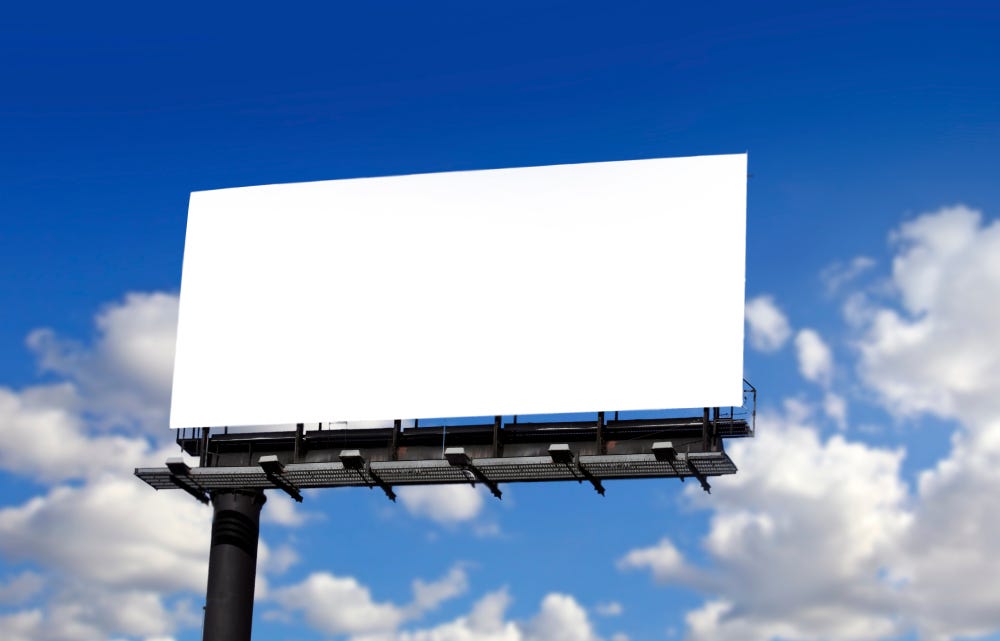The Great Divide
The industry and RG advocates find themselves at odds over the new federal bill that earmarks 50% of the federal sports betting excise tax for addiction treatment.
The Bulletin Board
NEWS: AGA and NCPG split over new federal bill.
NEWS: Maine has three gambling expansions on the agenda, including tribal casinos and online casinos.
NEWS: NCAA President Charlie Baker highlighted sports betting during his first State of College Sports address.
VIEWS: Spectrum Gaming has updated its 2022 Indiana online gambling report to counter cannibalization claims. But action is still unlikely in 2024.
AROUND the WATERCOOLER: Peacocks, Paywalls, and Playoffs.
STRAY THOUGHTS: The interest in poker.
SPONSOR’S MESSAGE - Underdog: the most innovative company in sports gaming.
At Underdog we use our own tech stack to create the industry’s most popular games, designing products specifically for the American sports fan.
Join us as we build the future of sports gaming.
Visit: https://underdogfantasy.com/careers
Industry and NCPG on Opposite Sides of Excise Tax Bill
A new federal bill introduced by Sen. Richard Blumenthal and Rep. Andrea Salinas was largely applauded last week. The bill, titled Gambling Addiction Recovery, Investment, and Treatment Act or GRIT, would finally provide a paper trail for the .25% federal excise tax on sports bets in the US.
The bill earmarks 50% of the federal sports excise tax revenue for gambling addiction treatment and research through Health and Human Services (more specifics here).
Even though the bill simply provides some accountability for the funds, the casino industry isn’t supporting the measure, as it goes against one of its main policy goals, eliminating the sports betting excise tax.
Rep. Dina Titus, who co-chairs the Congressional Gaming Caucus and is perhaps the most pro-regulated gambling lawmaker in Congress also spoke out against the bill - Titus has led efforts to repeal the federal excise for a decade. Speaking to the Nevada Independent, Titus called the bill “redundant” and said it “would exacerbate already destructive tax policies that put the legal gaming industry at a disadvantage to illegal offshore operations.”
Titus also noted the sponsors didn’t approach her about the bill and are not members of the Congressional Gaming Caucus.
In a statement to SBC Americas, AGA Senior Vice President of Government Relations Chris Cylke called the excise tax “bad policy” that gives a competitive advantage to illegal operators:
“Congress enacted the federal sports betting excise tax in the 1950s as a tool to prosecute illegal gambling operations. Today, this antiquated policy puts the nascent legal market at a competitive disadvantage against offshore illegal operators, who do not pay any taxes and prey on vulnerable customers.
“The AGA opposes the GRIT Act and will continue to educate Congress about why enacting bipartisan legislation to repeal the excise tax on legal sports betting operators is necessary to ensure we can effectively migrate Americans into the protections of the regulated market.”
Cylke also noted that problem gambling funding is at an all-time high and, “Nearly every tax dollar earmarked for problem gambling services comes from casino gaming taxes, including new legal sports betting and iGaming markets.”
Getting down to brass tacks: The AGA and the industry aren’t against funding RG and PG measures. Instead, the industry understands that if the excise tax dollars are earmarked for problem gambling treatment and funding, the excise tax is never going away.
The National Council on Problem Gambling and responsible gambling advocates see things differently. Very differently.
In a release praising the GRIT Act, the NCPG called it a “significant milestone” that “does not raise taxes or create additional bureaucracy” and instead “leverages existing federal excise tax revenue and operates within the existing Health and Human Services framework.”
“The GRIT Act provides direct and vital support to state health agencies and nonprofits addressing problem gambling,” the NCPG went on to say. “It also creates investment in best practices and comprehensive research at the national level.”
The divide between the industry and RG-PG advocates is the first significant policy divide of the sports betting era.
Sponsorship opportunity
Want to sponsor the fastest-growing newsletter in the gambling space? Straight to the Point has multiple sponsorship opportunities available.
Reach out to Steve at iGamingPundit.com for more details.
Maine Considers Legalizing Tribal and Online Casinos
A fight is brewing in Maine as a group of lawmakers push for more gambling expansions through the state’s tribes. Maine’s two commercial casino operators are unsurprisingly opposed to the expansions.
As previously reported, the conversation about legalizing online casinos began on January 3 but was cut short by a bomb threat. The meeting resumed last week, with three potential expansions up for discussion:
LD 1777: Allows the state’s tribes to add casino games to existing mobile sports betting offerings.
LD 1944: Would allow tribes to enter into compacts with the state to open land-based casinos on tribal lands and negotiate with the state to develop a casino off-tribal lands (with a buffer zone around the two current casinos in Oxford and Penobscot).
LD 1992: Would authorize electronic Beano and historical horse racing machines “to allow Maine gaming licensees and federally recognized Indian Tribes to compete with other gaming states.”
The collective scope of the expansions could be their undoing, particularly on the heels of sports betting legalization.
“This is a huge expansion,” Dan Walker, an attorney representing Oxford Casino, said at the hearing. “You combine it [tribal casinos] with what else we’ve been hearing. What’s being brought forward to this committee this session is the biggest expansion of gaming in [Maine] history, taken all together.”
NCAA President Outlines Approach to Sports Betting
Sports betting was a major topic at the recently concluded NCAA Convention in Phoenix, AZ.
In addition to a panel discussion (which you can watch here), NCAA President Charlie Baker spent 3 minutes of a 19-minute address on sports betting during his first State of College Sports address.
According to Baker, the existing penalties for student-athletes betting on sports were outdated and too harsh, which led to an updated policy enacted in November. Baker also said the NCAA’s outreach and care were outdated, leading to the NCAA finalizing an agreement with the NFL to deliver messages to NCAA athletes on the dangers of sports betting and peddling inside information.
“Sports betting is basically everywhere, especially on campuses,” Baker said. “Every conversation about the team, the competition, and the health and well-being of their teammates is not just chatter anymore but currency for some and inside information for others.”
Baker also mentioned threats to college athletes, culminating in the need to provide 24/7 protection to a team at a tournament last year.
Finally, Baker mentioned working with his previous gubernatorial colleagues. One area that might come under scrutiny is prop betting, which the NCAA cast its gaze on in November.
Revised Indiana Online Casino Study; Action Still Unlikely
Indiana has taken online casino legalization off the table for 2024, but the push continues.
Spectrum Gaming Group recently revised its 2022 Indiana online gambling study to refute cannibalization claims that surfaced during last year’s legalization effort.
Per a fiscal note, “Online casino games will displace some gambling activities occurring at brick-and-mortar casinos. Studies have concluded that up to 30% of new online gaming revenues are displaced from existing casino revenues.”
As many pointed out, the fiscal note relied on a 2011 study. That was two years before any state offered legal online gambling.
Spectrum’s 2022 study concluded the opposite. “Based on the evidence from the states where iGaming has been introduced, there is little, if any, cannibalization of revenue from established casinos.”
Thomas Winter, who headed the Golden Nugget’s online gambling division (GNOG was acquired by DraftKings), was quoted in the original Spectrum study.
“A couple of misconceptions are interesting to address,” Winter said in 2020. “The first misconception is that online gaming is going to cannibalize land-based gaming revenues, and of course, we don’t want that… When I started (in 2013), this was a fear. What we demonstrated… was that not only was it not true, but it was the opposite.”
Still, online gambling supporters felt a harsher critique of the cannibalization claims and updated numbers were needed, leading to the Indiana Gaming Commission’s request for a revised Spectrum report.
One update was the number of people employed by Evolution AB, which runs live dealer online games in four states at five separate studios. The 2022 report puts Evolution AB employment at 2,000 across three states. The revised report lists more than 2,600 employees following the addition of Connecticut. Per Evolution, a live dealer studio in Indiana could add another 800 jobs.
The Spectrum report is at odds with a separate study conducted by The Innovation Group in Maryland. The TIG report was positive but concluded that online gambling cannibalizes land-based gambling by 10%.
Around the Watercooler
Social media conversations, rumors, and gossip.
Saturday’s playoff games lit social media up. Yes, the games provided plenty of things to talk about, but it was where the games were available that drove the conversation.
“One of the latest trifles that has made a whole lot of people adopt the trappings of the aggrieved first-time, long-time bellyacher is the NFL’s move to stage a Wild Card playoff game behind a $5.99 paywall,” Sportico wrote.
Despite the gripes, the stream will go down as a major success.
Stray Thoughts
Online poker has become an afterthought, but every time I write about the game (as I did on Friday), the post always generates a discussion and increased engagement, both publicly and privately.
There’s something about poker.
And speaking of poker… I’m thoroughly enjoying a new newsletter from the folks over at Poker.org. It’s a weekly newsletter that excellently and entertainingly relays major poker happenings.
You can subscribe to The Org newsletter here.







